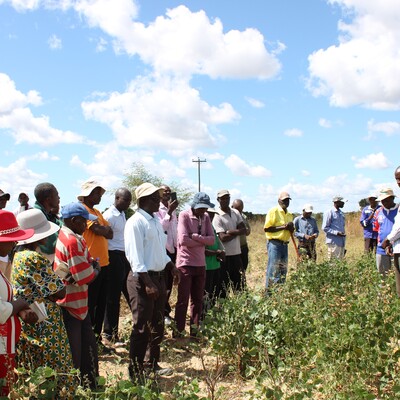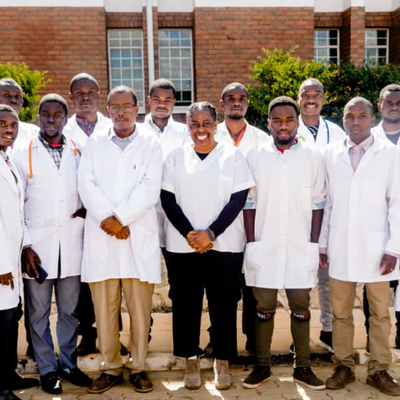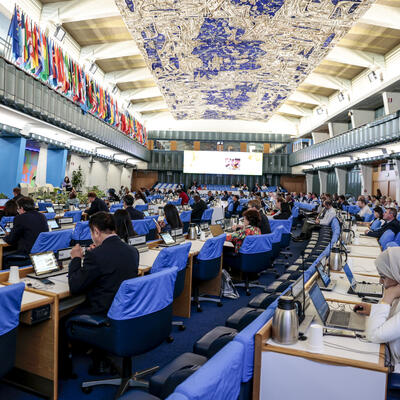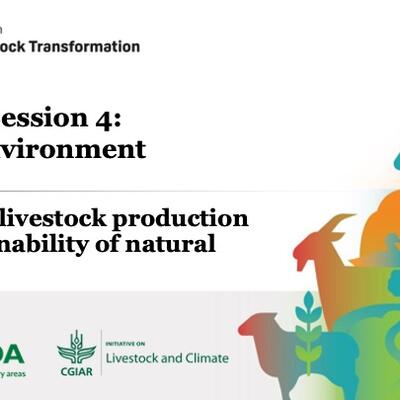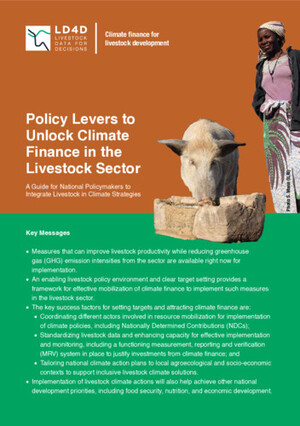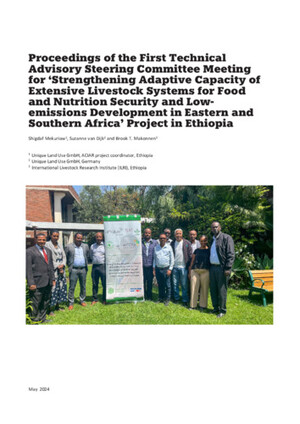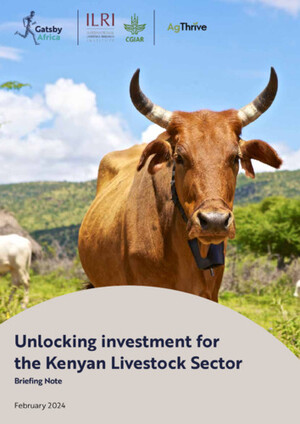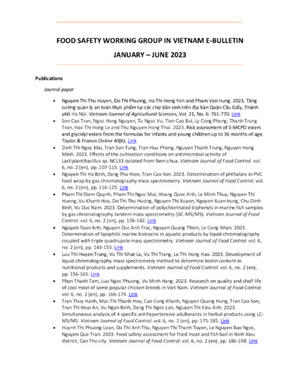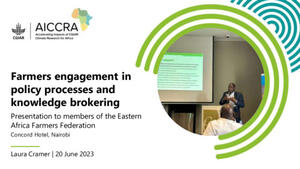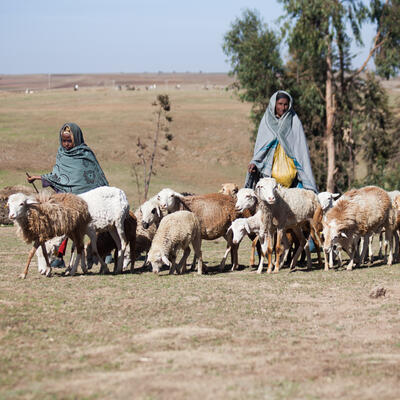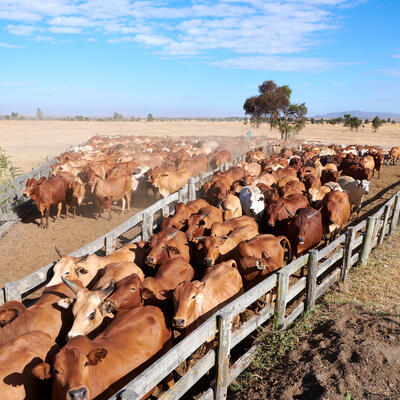
Putting accountability at the centre of the UN Food Systems Summit
A thoughtful paper has just been published by the editors of the scientific journal Global Food Security on the need to establish ways to ensure that the United Nations Food Summit delivers on the commitments it will make this September.
All hat and no cattle: Accountability following the UN food systems summit, by Namukolo Covic, Achim Dobermann, Jessica Fanzo, Spencer Henson, Mario Herrero, Prabhu Pingali and Steve Staal, editors of the Global Food Security Journal, published in Global Food Security, Sep 2021.
Note: To 'be all hat and no cattle' is an informal expression in the US meaning:
To tend to talk boastfully without acting on one's words—
to be full of big talk but lacking action, power or substance—pretentious.
Excerpts from the journal paper follow.
From the abstract
‘The United Nations Food Systems Summit (UNFSS) is an important moment to garner political and financial attention to the challenges that food systems face. It is a difficult moment with many competing national and global priorities including massive inequities, rapid climate change and a global pandemic. It will be important for the UNFSS to build in robust accountability mechanisms to ensure that commitments to address food systems challenges are upheld, and that these mechanisms align to already existing frameworks towards sustainable development. While the UNFSS may be impressive in its planning, without accountability of what, who, and by when, it could fall short in its execution. We, as the Editors of the Global Food Security Journal articulate the importance of accountability to ensure the UNFSS is not just ‘all hat and no cattle.’
From the paper
1. Why is the UN food systems summit important
‘The upcoming United Nations Food Systems Summit (UNFSS) aims to address the most pressing issues facing food systems, including food security, diet quality, and environmental sustainability. The UNFSS has emanated from the need to make food systems deliver better nutrition, health, and livelihood outcomes while limiting the significant negative impacts of food systems on the environment. . . .
‘The UNFSS is meant to garner a standard definition of food systems and a collective vision of needed changes to food systems in the 21st century. It is also expected to be informed and influenced by science, with critical discussions and agreements being evidence-based. Researchers, many of whom have published in this journal, have accumulated extensive evidence on the fragility of food systems in our current world that can inform the UNFSS. . . .
‘There have been many “canaries in the coal mine” and calls for action, but often to little avail. The UNFSS comes at a time when the need to heed these calls has never been so evident. The crisis we are facing has been all too visible of late. The COVID-19 pandemic has had catastrophic impacts, especially in the poorest parts of the world. Global undernutrition is and will continue to increase substantially as a result. At the same time, recent floods in Europe and Asia, and extensive fires in North America and Southern Europe, point to the need to take drastic and sustained action on climate change and the most recent Intergovernmental Panel on Climate Change (IPCC) report has indicated that global warming is affecting every region on Earth, with many of the changes approaching irreversible status.
‘Food systems have an important role to play in mitigating these catastrophes; after all, they have been estimated to contribute up to 30% of greenhouse gas emissions. At the same time, actions taken within food systems present a significant opportunity for climate change mitigation and adaptation.
These events, their consequences and the untapped opportunities are an all too stark reminder of the importance of the UNFSS and the potential benefits that positive food systems transformation could bring. . . .
2. What happens the day after the Summit?
The day after the summit proceedings, the proverbial rubber must meet the road—commitments must be realized after everyone gets on a plane or signs off Zoom and goes back to their regular routines.
At the time of writing this editorial, there has been no UNFSS accountability mechanism announced. . . .
Without money on the table and no concrete commitments to joined-up actions, it is difficult to see how the UNFSS will achieve the necessary traction. . . .
‘So, this begs the question, what makes the UNFSS different from what has come before? While skepticism is perhaps understandable, it is essential to recognize that opportunities for concrete actions exist. For example, many low- and middle-income countries’ (LMICs) efforts to “do things differently” are building momentum on plans for sustained change and, in many cases, leveraging existing policy frameworks to accelerate progress. Further, while COVID-19 presents enormous challenges for the world, there is growing recognition of the need to “build back better.” The pandemic presents a robust case for substantial and increased investment by donors to ensure that food systems are more resilient, equitable, and sustainable. . . .
3. What is needed to establish accountability?
‘To ensure that the UNFSS delivers, an accountability mechanism that tracks the fulfilment of the commitments and actions made at the Summit is a top priority. Such a mechanism should show who delivers and who does not. In addition, it should motivate action and demonstrate to the/a (skeptical) world that the UNFSS has achieved what it set out to do. . . .
[T]here is a need for a recognized scientific body that brings together and validates available evidence and builds consensus around how the global food system is performing, actions, and sustainable and achievable solutions. The High-Level Panel of Experts (HLPE) serves as the scientific advisory body to the United Nations’ Committee on World Food Security (CFS), a policy-coordinating body for addressing global food security and nutrition issues. They produce a series of reports on timely topics related to food systems that help contribute and strengthen the science-policy interface. Clapp and colleagues argue that developing an IPCC-like body independent of the HLPE would cause further fragmentation and confusion regarding food policy governance. Conversely, others disagree and argue that there is a need for another model—an independent body outside the CFS like the IPCC (neutral with respect to policy choices) that involves many expert scientists (sometimes over 800) selected by their governments along with scientists coming from international bodies. This body would perform a balanced assessment of the full range of scientific views, and democratize participation shielded from special interests. . . .
4. What does the UNFSS mean for much of the world?
. . . [T]he UNFSS includes a suggested Coalition of Action for Healthy Diets from Sustainable Food Systems for Children, Families and All . . . [that] calls on all food systems actors to consider their diverse entry points for concrete actions that can “ensure all people eat healthy diets from sustainable food systems”.
'The UNFSS could use such a vision to align diverse stakeholder efforts to deliver better diets for people and the planet. . . . Many LMICs are coming to the UNFSS with already defined plans for which they will be seeking external funding. Such countries risk being beholden to donors, who will push their interests and priorities. It is hard to think of a comprehensive strategy in such circumstances. Ideally, the donors should listen to what the countries believe will make a difference and support those actions. This redirection would be a bold way of doing things and ensure that country context becomes central to decisions on which efforts to support and how.
The UNFSS needs to avoid the situation where the rich world defines the agenda and takes off-the-table issues that it considers unpalatable to its interests or a low priority, often in the light of lobbying by the trans- and multi-national corporations dominating the agenda. Indeed, extensive efforts by the African Union towards a unified Africa position on food systems transformation informed by multiple country-level dialogues have mostly remained invisible to the global process. Yet, ironically, the African Union carries the voices of 54 member states. . . .
5. Conclusion: We all want the UNFSS to be more than just a hat and instead have more cattle.
‘[T]here needs to be a robust accountability mechanism tied to guaranteed investments that hold actors to agreed actions. These actions must be immediate and address the detrimental, food system consequences on human health, the environment, and society. Furthermore, a scientific body must support this accountability mechanism that rigorously, neutrally, consistently, and openly evaluates evidence and has a robust monitoring system backed with indicators and benchmarks that the world can feasibly track. Further, the agenda and discussions at the UNFSS need to be driven by LMICs and other voices that are often given a back seat, including citizens, consumers, and other civil society actors. While many experts have been called upon or have simply stepped up to organize and be present at the UNFSS, others may purposely stay away due to legitimacy concerns. This exclusion is a considerable loss of a critical opportunity to bring much-needed change to global food systems. Regardless of the stakeholder perspective we come from, we all have a role to play and should hold ourselves accountable to identifying our unique and diverse entry points from which we can contribute proactively.’






